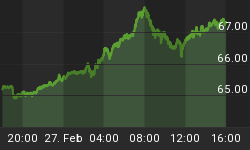I often get the feeling that traders and investors have put too great a trust in the monetary magic of the Federal Reserve.
It's August, 2010. The SP500 is nearly 20% from its near term high. The economy is on the verge of a recession. Fed Chairman Bernanke announces a little program at the Jackson Hole conference that ultimately morphed into QE2. The markets bottomed and never looked back.
Fast forward a year to August, 2011. The markets have suffered another devastating summer as prices on the major exchanges have fallen nearly 20% again, and in dramatic fashion. Certainly, many factors are to blame including political gridlock in Washington, the downgrade of US debt, and the European sovereign and banking crisis. Nonetheless, the markets bottom in August and September as investors find solace in Bernanke's Operation Twist.
But October, 2011 isn't August, 2010. Maybe it is the scope of the crisis in Europe or the lack of political will to contain it. Maybe it is the recognition that all these QE's are just monetary steroids that have lost their efficacy. Maybe it is the lack of political will to fix our debt habit. Maybe, maybe, maybe...
It's different because it is always different!
But here is the real reason I see differences, and it has to do with Treasury bonds and the US Dollar. Back on July 30, 2010, my trading model for the Dollar gave a sell signal; the trend was no longer bullish. A week later my bond model also gave a sell signal, and this model stayed bearish on bonds until March 11, 2011, which was only 8 short weeks before the equity market top. Back in August, 2010, there were favorable conditions for the equities markets to move higher. The Dollar was falling and bond yields were moving higher in approval. A recession was averted.
But now a year later with another QE upon us, there is strength in the Dollar and Treasury bonds. A bullish Dollar is a headwind for equities, and falling Treasury yields are a sign of economic weakness as in recessions are deflationary. These are 2 very material and substantive differences for equities, and this is why October, 2011 is not like August, 2010.
I don't know if the Fed can engineer another "recovery". I know they will try, and I know investors will do their very best to believe in the Fed's abilities to make everything good. However, I cannot help but think that investors are going to the well just once too often. There are headwinds in the headlines out there. Is it the "wall of worry"? Maybe, but the equities market need to reconcile with the growing headwinds presented in the Dollar and in Treasury bonds -- both which remain bullish.















